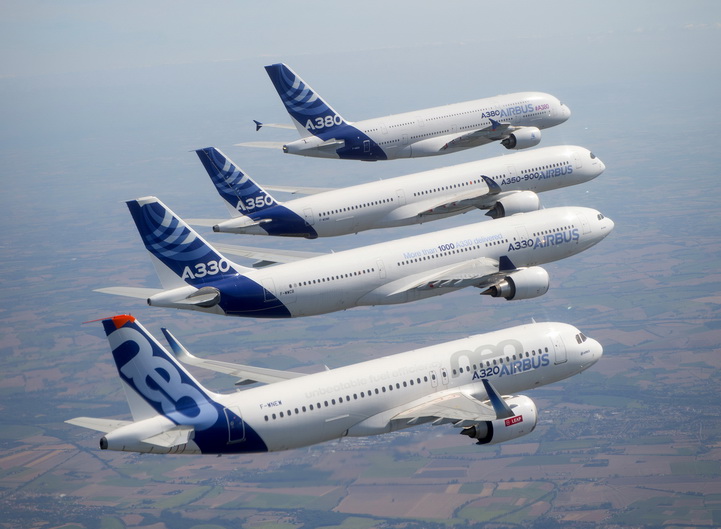Airbus SE says it overachieved on its 2017 guidance for all key performance indicators, driven by a strong underlying performance.
“We overachieved on all our 2017 KPIs thanks to a very good operational performance, especially in the last quarter,” said Airbus Chief Executive Officer Tom Enders. “Despite persistent engine issues on the A320neo, we continued the production ramp-up and finally delivered a record number of aircraft. On A400M, we made progress on the industrial and capabilities front and agreed a re-baselining with government customers which will significantly reduce the remaining programme risks. This is reflected in a substantial one-off charge. Overall, the strength of our 2017 achievements is reflected in our dividend proposal which is up 11 percent against last year. This also endorses our earnings and cash growth story for the future.”
Order intake increased to €158 billion (2016: €134 billion) with the order book valued at €997 billion as of 31 December 2017 (year-end 2016: €1,060 billion). A total of 1,109 net commercial aircraft orders were received (2016: 731 aircraft), with a book-to-bill ratio of 1.5. The backlog by units reached a record year-end level of 7,265 commercial aircraft. Net helicopter orders totalled 335 units (2016: 353 units), including 48 Super Puma Family rotorcraft and 17 H175s.
Revenues were stable at €66.8 billion (2016: €66.6 billion) with higher aircraft deliveries offset by a reduction in revenues of around €2 billion from the perimeter changes. Commercial Aircraft revenues rose by 3.5 percent with record deliveries of 718 aircraft (2016: 688 aircraft) comprising 558 A320 Family, 78 A350 XWBs, 67 A330s and 15 A380s. Helicopters’ revenues were slightly lower with deliveries of 409 units (2016: 418 units).
Commercial Aircraft’s EBIT Adjusted of €3,554 million (2016: €2,811 million) reflected the strong delivery performance supported by improved foreign exchange rates.
A total of 181 A320neo Family aircraft were delivered, up from 68 during 2016. Supplier Pratt & Whitney introduced new engine fixes in the fourth quarter which have been certified. A new issue has arisen recently, the impact of which is under assessment with respect to 2018 deliveries. CFM International meanwhile experienced some maturity issues in 2017 on some batches of the LEAP-1A engine. The A320neo ramp-up remains challenging and requires that the engine suppliers deliver in line with commitments, says Airbus. On the A350, good progress was made with the industrial ramp-up, recurring cost convergence and the reduction of outstanding work in the Final Assembly Line, which has been significantly reduced. The A350 programme is preparing to reach the targeted monthly production rate of 10 by the end of 2018. Meanwhile, Emirates Airline’s latest order provides increased visibility on the A380 programme for the years to come.
Helicopters’ EBIT Adjusted declined to €337 million (2016: €350 million) but was broadly stable on a comparable basis. Lower deliveries, an unfavourable mix and lower commercial flight hours in services were compensated by transformation efforts which have globally supported the Division’s competitiveness in a challenging market. The sale of the maintenance, repair and overhaul business Vector Aerospace was closed in November.
The Board of Directors will propose to the Annual General Meeting the payment of a 2017 dividend of €1.50 per share on 18 April 2018 (2016: €1.35 per share). The date of record is 17 April 2018.
As the basis for its 2018 guidance, Airbus expects the world economy and air traffic to grow in line with prevailing independent forecasts, which assume no major disruptions.

